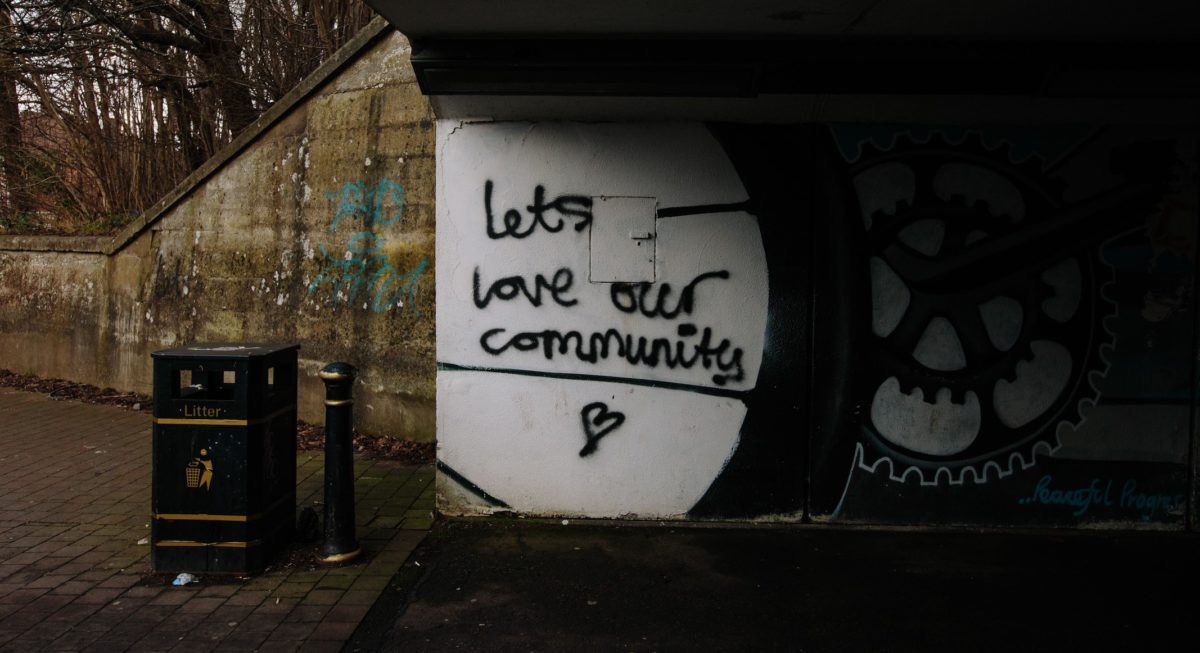Years ago, I was given a career opportunity with a global investment trust fund to represent and work for an extraordinary group of people that represent the core of our communities and our economy, what we now refer to as ‘essential workers’. These are people whose work is critical to the functioning of our economy. They build and maintain our infrastructure and facilities, which support our homes and our businesses. They operate and provide the services that keep businesses functional. My role was to help them invest money they saved for their future, as a resource for their retirement. My job gave me stark insight into the difficulties confronting most people in the economy – the ongoing and growing inequity that exists in an economy driven to expand markets, to reduce expenses, and grow profits for short term returns. Almost without exception, financial institutions gave little attention to the social, environmental, or other impacts of their practices
The conditions that created the current disparity in our economy did not suddenly appear. They emerged incrementally over decades as the result of an economy and financial system driven by raw growth and an embedded belief in the obligation to deliver short term bottom line financial results. However, these beliefs were finally laid bare as a global pandemic and social unrest overwhelmed our economy, our social systems, and our communities.

In the face of this global catastrophe, and certainly before, a growing chorus of societal leaders is calling for systemic change. As we turn the page to 2021 and look to the future, some signs have appeared that our institutions may be listening. In fact, something truly remarkable happened on January 28th. General Motors, the world’s most recognizable auto maker, currently ranked as the 18th largest company in the world, announced that by the year 2035; they will only sell vehicles that have zero tailpipe emissions. GM’s announcement seems truly extraordinary, but is it really? What impact does this shift and related supply chain changes have on the economic, social, existing physical infrastructure, and natural capital of our bioregions?
GM’s announcement should encourage those who have been calling for action against climate change. Since its founding in 1908, GM grew into a dominant global brand powering mobility with the use of a singly designed source of power which consumed fossil fuel. Over decades, incremental changes to the engine improved reliability, added power, reduced emissions, and increased efficiency. Now, they are moving to changing the power source in a vehicle – something that produces no emissions.
It is helpful to understand that institutional change like that announced by GM only occurs for one of three reasons: (1) The market demands it; (2) Financial investors demand it; or (3) Regulation demands it. It is more interesting to understand how the auto industry got to this point. In the year 2000, 4 of the 10 companies in the Fortune 500 were either energy or transportation companies. Now, there is only one. The change was coming.
Here is my concern and the reason CityCraft is focused on the need for our society to act differently as this change occurs. For decades, communities and the residents that occupy them have been on the receiving end of the social and environmental impacts of economic growth. Some of the impacts have created value, but often with a heavy cost. Economic growth was often achieved by extracting value; while deferring or rejecting investment into the communities that served as the backbone of their growth. In response to growing inequity, entire public governance structures and new industries developed and grew, straining the system and furthering the broken cycle – growth, damage, mitigate, repair, repeat. As companies transform themselves to meet the demands of a new economy, the question is – will we see a broad-based reimagination of our economy and the communities that support it or, will this be just the latest incremental effort to grow the economy; to the detriment of our communities?

As we look forward to what could be a remarkable period of transformation in our economy, indeed in our society, my partners and I at CityCraft want to engage this community in a series of conversations around a regenerative perspective to reshaping our communities, whether a local neighborhood or the global community that supports the mainstays of our existence, like transportation companies.
Transformation can evolve into broad-based community regeneration. Communities and the companies and agencies they contain can join to create a future that develops regenerative economic, social, and environmental systems. The institutional infrastructure that has historically driven economic growth should fully integrate human capital and modified governance structures focused on collaborative prosperity and health, thereby completely ensuring broad-based community involvement and a just transition for those impacted by change.

The key leadership for this journey of transformation and regeneration will be each of us. We must organize, develop our leadership skills, establish community led governance structures, and build localized resources.
It may seem daunting, but the famed anthropologist Margaret Mead said, “Never doubt that a small group of thoughtful, committed, citizens can change the world. Indeed, it is the only thing that ever has.”


Very insightful piece and a great perspective. We need more of this!